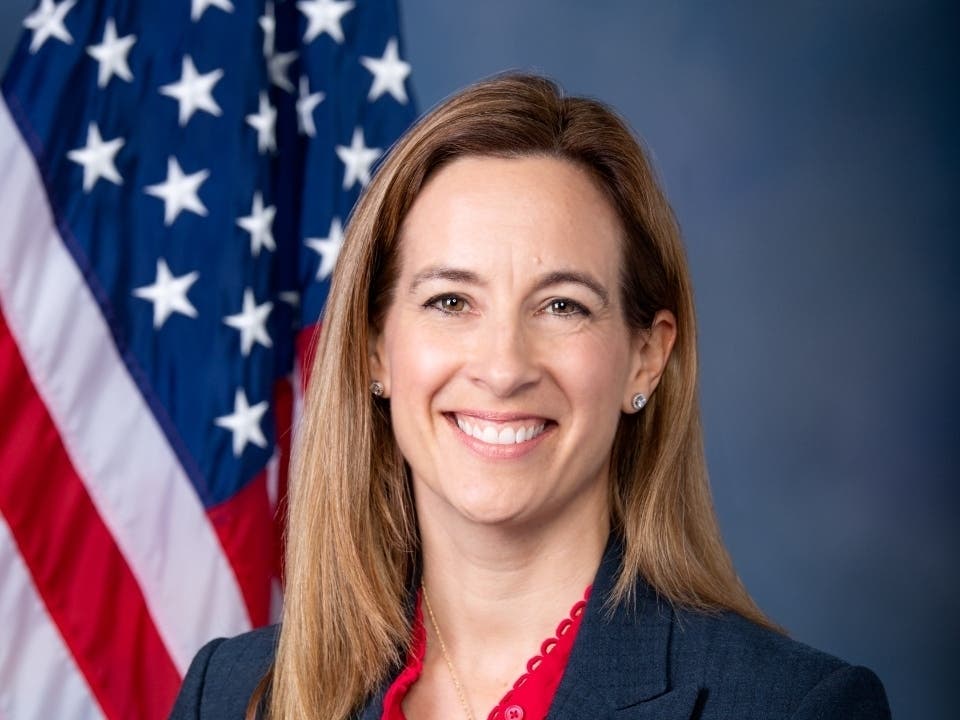
ESSEX COUNTY, NJ — A proposed federal law would beef up mental health care support for prison inmates – and also be a win for taxpayers, advocates in New Jersey say.
U.S. Rep. Mikie Sherrill sat down with county prosecutors, law enforcement officials and mental health professionals at a roundtable in North Jersey this week, seeking to learn more about their work addressing mental health needs in the criminal justice system.
The congresswoman – who represents the state’s 11th District (Essex, Morris and Passaic) – also pushed for a newly introduced bill that she says will boost their efforts: the “Mental Healthcare in the Re-Entry System Act.”
If it crosses the finish line, the bill would provide funding to conduct mental health screenings for inmates. The money would also help formerly incarcerated prisoners get referrals to mental health care providers when they’re released.
The bill would authorize $600 million in funding over five years, a spokesperson for the congresswoman told Patch.
The roundtable was hosted at the Mental Health Association of Essex and Morris (MHA) in Parsippany, and included representatives from MHA’s Collaborative Justice Services, the Morris County Prosecutor’s Office, Essex County Prosecutor’s Office, Essex County Sheriff’s Office, and the NJ State Association of the Chiefs of Police.
Here’s why the bill is needed, Sherrill said:
“Access to mental health services is so important because almost 70 percent of individuals released from state prisons have been arrested again within three years and a lack of access to mental health care for those in the criminal justice system likely plays an important role in this cycle of incarceration and re-arrest. About 40 percent of incarcerated individuals have a mental health condition and 16 percent have a severe mental illness, and inmates with severe mental illnesses are twice as likely to return to prison compared to those without such illnesses.”
“It was clear in yesterday’s discussion that – here in New Jersey – we know firsthand that some of the best ways to lower crime rates and improve community safety are by making sure justice-involved individuals have the mental health resources they need to succeed,” Sherrill said.
“These critical resources are an important step in reducing recidivism rates and preventing crime across the Garden State,” she added.
Does it work? Sherrill noted that her proposed law is based on a program developed by the Johnson County, Kansas jail system in 2016. A study of the program found that it increased the rate at which released individuals were connected to mental health care by 27 percentage points, and reduced recidivism by 7.6 percent within a year (compared to a baseline one-year recidivism rate of 46.3 percent, so a 16 percent decline).
Bob Davison, CEO of the Mental Health Association of Essex and Morris, said the nonprofit enthusiastically supports Sherrill’s bill.
“The proposed program will enhance public safety, improve the lives of individuals with mental illness and reduce costs to the taxpayer,” Davison said.
“These are tough issues that a lot of people ignore,” Davison added.
The legislation has also been endorsed by the International Union of Police Associations and the Sheriffs Association of New Jersey, as well as several other law enforcement leaders across North Jersey.
Essex County Prosecutor Theodore Stephens – an East Orange resident who oversees the busiest prosecutor’s office in the state – said the bill will “help divert individuals who should not be in the criminal justice system to the professionals they need to get their lives back on track.”
“This bill is at the forefront of where we need to go with criminal justice – being able to identify individuals who need not be involved with the justice system criminally, but who have an identified, diagnosed problem that can be met and dealt with in a medical fashion,” Stephens attested.
Montville Chief of Police Andrew Caggiano said that police departments often have encounters with the same person over and over again.
“One of the things that has been most beneficial to us is the follow up that is involved,” Caggiano said. “We can get them to the hospital, we can get them to services, but who is there to come back and say, ‘Are you making your appointments?’ Those are the things that will drive down the number of times we have to see the same person over and over.”
Sherrill noted that the proposed law is one of four pieces of legislation in her “SAFE New Jersey agenda,” which provides funding for law enforcement agencies and community-based services that have strong evidence they reduce crime.
New Jersey’s 11th District includes the following municipalities:
- Essex County – Belleville, Bloomfield, Cedar Grove, Fairfield, Glen Ridge, Livingston, Maplewood, Millburn, Montclair (part), North Caldwell, Nutley, Roseland, South Orange, West Caldwell
- Morris County – Boonton, Boonton Township, Butler, Chatham, Chatham Township, Denville, Dover, East Hanover, Florham Park, Hanover, Harding, Jefferson, Kinnelon, Lincoln Park, Madison, Mendham Twp (part), Montville, Morris Plains, Morris Township, Morristown Town, Mountain Lakes, Parsippany-Troy Hills, Pequannock, Randolph, Riverdale, Rockaway, Rockaway Township, Victory Gardens
- Passaic County – Little Falls, Totowa, Wayne (part), Woodland Park
Send local news tips and correction requests to eric.kiefer@patch.com. Learn more about advertising on Patch here. Find out how to post announcements or events to your local Patch site.
This post was originally published on this site be sure to check out more of their content.








